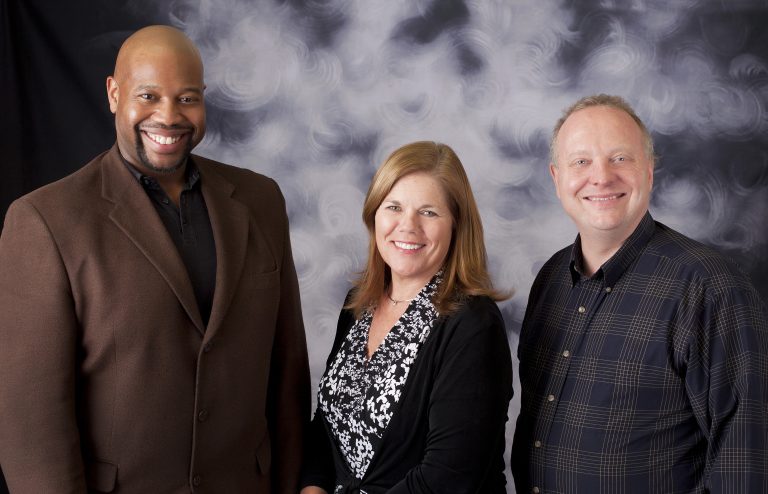Blog

I’ve been asked many times throughout the years, “If I don’t like my counselor should I just stick it out or get a new one?” “Doesn’t the skill of the clinician matter more than their personality?” There has been a great deal of research on this topic, and the answer is clear: there is nothing more important in the therapeutic process than the therapeutic alliance. Research is very clear that even above the theoretical approach (i.e., CBT, DBT, solution-focused therapy, etc.) or even counseling expertise, therapeutic alliance is the most critical component of treatment. In other words, how you feel about your clinician is directly correlated to your treatment outcomes. If you don’t like your counselor, it may hinder your progress in treatment.
Ardito and Rabellino (2011) defined therapeutic alliance in the following excerpt:
According to the author, the therapeutic alliance consists of three essential elements: agreement on the goals of the treatment, agreement on the tasks, and the development of a personal bond made up of reciprocal positive feelings. In short, the optimal therapeutic alliance is achieved when patient and therapist share beliefs with regard to the goals of the treatment and view the methods used to achieve these as efficacious and relevant. Both actors accept to undertake and follow through their specific tasks. The other two components of the alliance can only develop if there is a personal relationship of confidence and regard, since any agreement on goals and tasks requires the patient to believe in the therapist’s ability to help him/her and the therapist in turn must be confident in the patient’s resources. [Researchers suggest] that the alliance will influence outcome, not because it is healing in its own right, but as an ingredient which enables the patient to accept, follow, and believe in the treatment. This definition offers an alternative to the previous dichotomy between the therapeutic process and intervention procedures, considering them interdependent.
Many individuals believed that getting the “best” therapist matters more than whether they like the person or not. This couldn’t be further from the truth. For example, if you had a pluming issue, it makes sense to also want the best plumber. And if the best plumber in town is also a jerk, most people would tolerate that person’s personality because they believe the ends (my plumbing issue is resolved in an expert fashion) sometimes justify the means (I have to deal with this negative personality during the process). Nevertheless, those types of relationships are generally temporary. Having to deal with a jerky plumber for a few days is more tolerable than dealing with a jerky therapist for months or years. Add to the situation that you are telling this jerky therapist the most intimate and detailed aspects of your life, which require a high degree of vulnerability. How vulnerable are you truly going to be with someone who you believe is a jerk? Hopefully it becomes easier to see why having a good therapeutic alliance is vital.
So how long should you stick it out before moving on to a new therapist if you feel the alliance is not there? I recommend giving the clinician at least three to five sessions (depending on limitations of your insurance or your own finances). If you still don’t feel comfortable after that, it may be time to look for another therapist. When you decide to go to another therapist for treatment, there’s a couple of things you need to understand:
- Most therapists are aware of the importance of good therapeutic alliance. They understand if you are not comfortable you are not going to do well, and so most of them won’t “feel bad” if you move on to someone else. Nevertheless, it’s not about the therapist, it is about you and your needs. Make sure you take care of yourself first and remember what brought you to therapy originally.
- There’s a difference between being uncomfortable with the process of therapy, and not liking the therapist. It’s important to make that distinction. Ask yourself, “Am I uncomfortable because I’m talking about things that are sensitive (i.e., you feel uncomfortable being vulnerable?), or is this counselor saying and doing things to make me feel uncomfortable?” If it is the latter, and it doesn’t improve after three to five sessions it may be time to move on.
- Just because a therapist has gotten great reviews or is an expert in their field, doesn’t equate to a good therapeutic alliance. Remember the three essential elements of the therapeutic alliance: If you are not working together on agreed upon goals, collaborating around the task to obtain those goals, AND have a “personal bond made up of reciprocal positive feelings”, it may be time to move on.
In summary, despite whether someone is a psychologist, psychiatrist, social worker, or counselor, or whether they practice CBT, DBT, or any other evidence based practice, at the end of the day if you do not have a good alliance with this individual you may not have the best outcomes in treatment. So, ask yourself the following questions after you have an assessment with a mental health professional for the first time (in order of importance):
- How do I feel about this person?
- Is this person practicing an evidence-based practice?
- Is there sufficient evidence (via degrees and/or licensures) that this person has the ability to practice these treatments?
If you can answer in the affirmative for all these questions, then you have taking the first step in increasing the likelihood of positive outcomes in treatment. Remember that you are not just receiving treatment; you are collaboratively participating in a treatment process. You are literally bringing all the information to the sessions that will be needed to reach your treatment goals. If you do not trust or like your therapist, it will impede on your process.
If you are in need of mental health counseling, please reach out to our associates at Behavioral Health Services of Greater Cleveland at one of our two locations: Rocky River and Medina. Family, individual, and couples counseling are available. Please call (866) 466-9591 ext. 0 for an intake.
Related Posts
Founded in 2008, BHSOGC has delivered professional Psychology Services to the greater Cleveland area with offices in Medina and Rocky River. We are a multi-disciplinary group practice with a clinical staff of psychologists, licensed social workers and masters level therapists.




